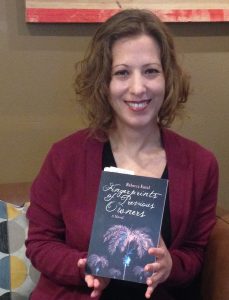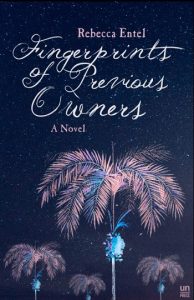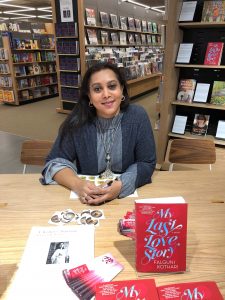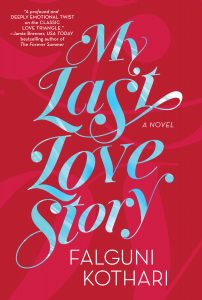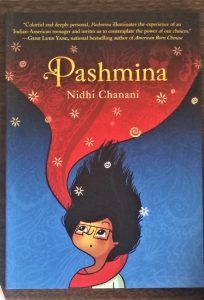Drunk on Ink Q & A with Lisa Romeo and ‘Starting with Goodbye: A Daughter’s Memoir of Love After Loss’
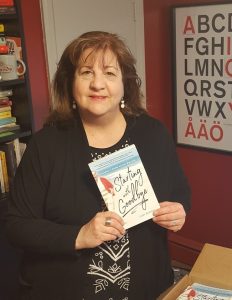
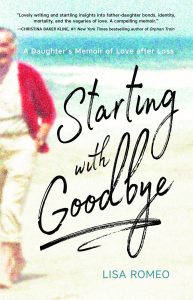
Read Jaggery Issue 11 Spring 2018
Lisa Romeo is the author of Starting with Goodbye: A Daughter’s Memoir of Love after Loss (University of Nevada Press). Her short nonfiction is listed in Best American Essays 2016, and has appeared in the New York Times, O The Oprah Magazine, Longreads, Brevity, Under the Sun, Hippocampus, The Manifest Station, Brain Child, Sweet, Inside Jersey, and many other places. She teaches in an MFA program and lives in northern New Jersey with her husband and sons.
Starting with Goodbye, published by University of Nevada Press, asks if it’s ever too late to (re)connect with a parent. When Lisa Romeo’s late father drops in for “conversations,” she wonders why the parent she dismissed in life now holds her spellbound. Lisa reconsiders her affluent upbringing and the emotional distance that grew when he left New Jersey and retired to Las Vegas. She questions death rituals, family dynamics, Italian-American customs, midlife motherhood, and her own marriage as their new father-daughter relationship transforms grief and delivers powerful lessons about the bonds that last past death.
Soniah Kamal: First author/book you read/fell in love with?
Lisa Romeo: From the time I could read at age 5, there were so many children’s books about horses that I read in nonstop gulps, and I can’t remember the name of a single one. The earliest books I remember for certain loving were National Velvet by Enid Bagnold, and Karen by Marie Killilea. The former because I lived and breathed horses, the latter I think because it was the first nonfiction book I read for pleasure and I was so taken by the idea that someone’s life—a non-famous person—could be in a book
To unwind: chai, coffee, water, wine?
One glass of Moscato or Riesling. Unless I’m hot, then I only want ice cold water!
A novel, short story, poem, essay, anything you believe should be mandatory reading?
Hmm…this is tricky. I want to ask, mandatory for whom? But absent that, the way I’m feeling most days, I’d say “The Second Coming” by William Butler Yeats.
Any classic you wished you’d pushed through in your teens?
A lot of them! I read nonstop, but my schooling didn’t include a lot of classics…or maybe it did and I can’t remember. Which I suppose means I need to read or re-read them all. I think in my teens I would have had more patience for Jane Austen, especially because I always longed to live in England.
A favorite quote from your book J
“This father is gone, never was, and is sitting right next to me.”
Your favorite book to film?
I’m so easily and consistently disappointed by most film adaptations of books I’ve loved. Purely for fun I’d say, Under the Tuscan Sun! Based on the book by Frances Mayes.
Favorite Indie Book Store/s?
Just a few miles from home: Watchung Booksellers, Montclair, NJ. The staff really know their stock and make interesting recommendations but will also leave you alone; there are author events at the store several times a week; and it has that quiet but sublimely buzzy vibe I like in a bookstore.
The one thing you wish you’d known about the writing life?
How long the learning curve is, how that learning curve never ends, how you’re never really finished nor completely satisfied with what you’ve produced, even after it’s published!
Does writing/publishing/marketing get any easier with each story/novel published?
I’ve just published my first book, so I can’t speak to what it will be like to move on to book two. Though I’m guessing: equally difficult! I’ve published hundreds of essays, articles, and other short nonfiction pieces, and each one poses its own challenge to write and place. It doesn’t get easier, you just know more and can avoid the obvious mistakes.
Dog, Cat, Or?
I’m a horse person from way back. I had five horses over about 17 years, and I rode and competed in hunter-jumper horse shows from my teens to my early 30s.
Favorite book cover?
This changes constantly! I suppose I should say my own, since it’s a photograph of my father that I took. But recently, my favorite cover is Still Life with Horses, a memoir by Jean Harper. A horse’s eye is very special and the artist (Benedicte Gele) captured it perfectly in pastels and chalk. Take a look, you’ll see.
Favorite song?
Strictly because it takes me back to meeting my husband and hearing him sing for the first time: “Cat’s in the Cradle” by Harry Chapin. (My husband, I must note, became the anti-thesis to the neglectful father in the song!)
Recommend a Small Press and Literary Journal?
Sarabande Books does a lot of interesting things with essay and other nonfiction forms.
Missouri Review, for overall consistency and readability. I’m never disappointed.
Last impulse book buy and why?
Working Stiff: Two Years, 262 Bodies, and the Making of a Medical Examiner by Judy Melinek, MD and T.J. Mitchell. Because I was wandering through a bookstore after doing a reading, and my eye always lands on books about death and the many things that might come after! (I’m strange that way).
More Drunk on Ink Interviews:
Mike Chen: Here and Now and Then, a novel
Ruth Franklin: Shirley Jackson A Rather Haunted Life, biography
Colleen Oakley: Before I Go, a novel
Emily Midorikawa: A Secret Sisterhood: The literary friendships of Jane Austen, Charlotte Bronte, George Eliot, and Virginia Woolf, biography
Shabnam Samuel: A Fractured Life, memoir
Elise Hooper: The Other Alcott, a novel
Anne Boyd Rioux: Meg, Jo, Beth, Amy: The Story of Little Women and Why It Still Matters, non fiction
Devoney Looser: The Making of Jane Austen, non fiction
Kristen Miller Zohn: The Currency of Taste- Gibbons Georgian Silver, coffee table book
Vanessa Hua, A River of Stars, novel
Chaitli Sen, The Pathless Sky, novel
Sonya Huber, Pain Woman Take Your Keys, memoir
Kathy Wilson Florence, Three of Cups, a novel
Sara Luce Look, Charis Books and More, independent book store
S J Sindu, Marriage of a Thousand Lies, a novel
Rosalie Morales Kearns, Kingdom of Men, a novel
Saadia Faruqi, Meet Yasmin, children’s literature
Rene Denfeld: The Child Finder, a novel
Jamie Brenner, The Husband Hour, a novel
Sara Marchant, The Driveway has Two Sides, memoir
Kirsten Imani Kasai, The House of Erzulie, a novel
Thrity Umrigar, The Secrets Between Us, novel
John Kessel, Pride and Prometheus, novel
Lisa Romeo, Starting with Goodbye: A Daughter’s Memoir of Love After Loss
Rachel May, An American Quilt: Unfolding a Story of Family and Slavery
Rebecca Entel, Fingerprints of Previous Owners, novel
Jamie Sumner, Unbound: Finding from Unrealistic Expectations of Motherhood
Falguni Kothari, My Last Love Story, novel
Tanaz Bathena, A Girl Like That, YA novel

